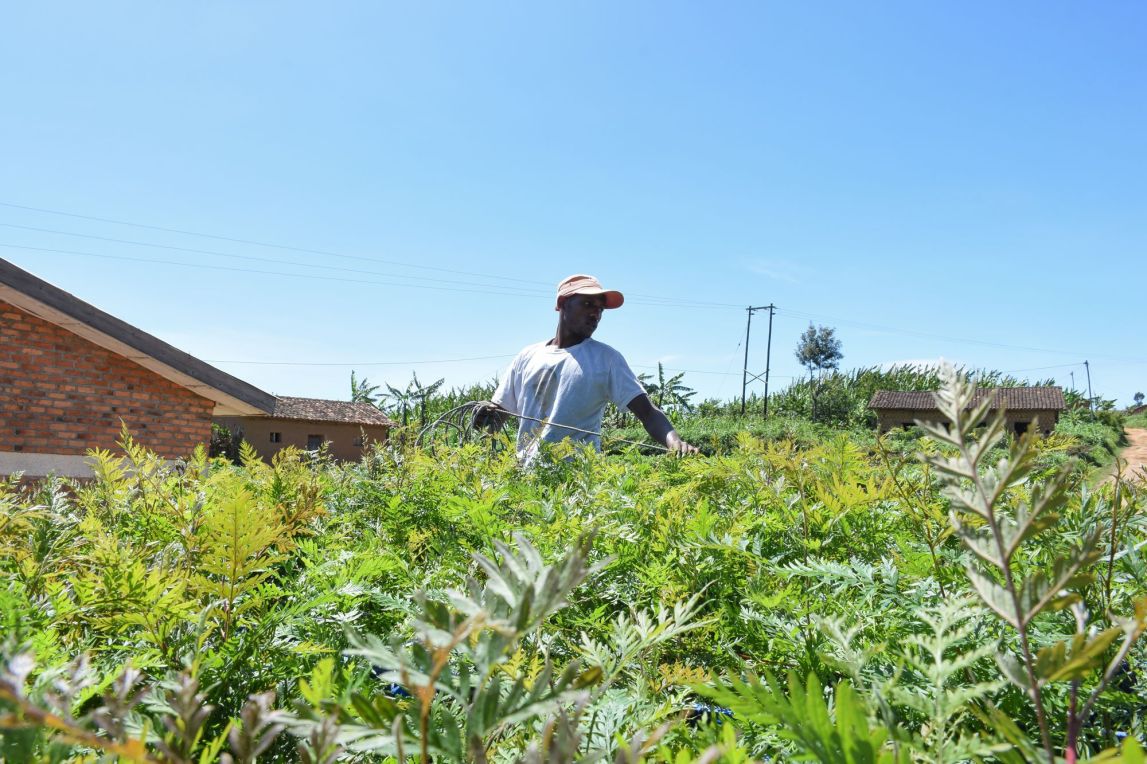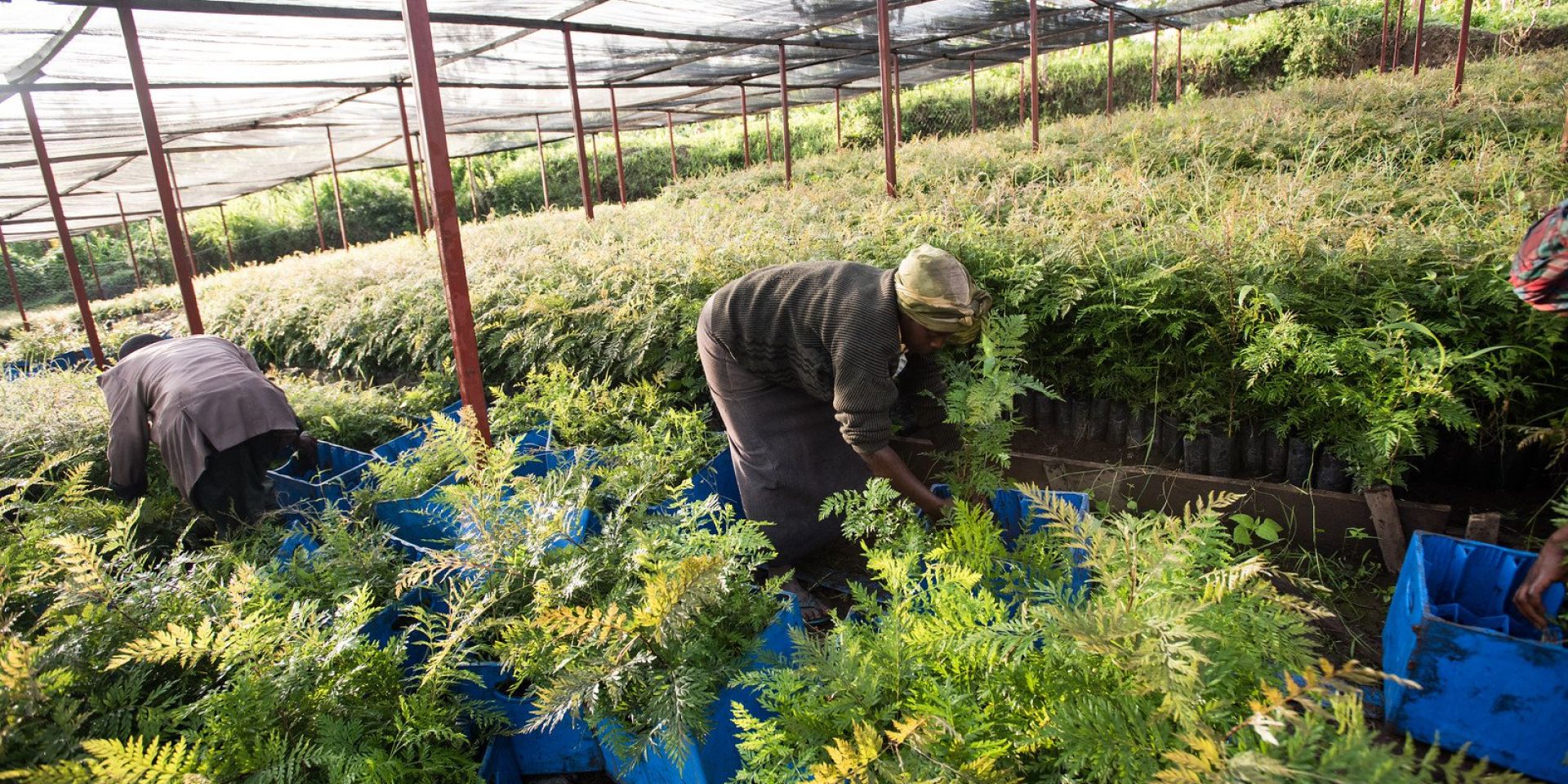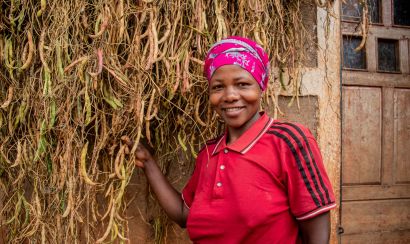Social Entrepreneurs: Invest in Trees
Kenya is a country full of entrepreneurs. Part of this comes from necessity -- with high levels of unemployment, striking out in business on your own or developing a “side hustle” to supplement other wages can be very appealing. Kenyans are incredibly resilient, and this enterprising spirit is one reason why we’re one of the fastest-growing economies in Sub-Saharan Africa and a top country in the region for doing business.
That’s why it’s something of a surprise that more Kenyans haven’t gotten involved in an industry that can have significant financial and social benefits: agroforestry. At first glance, growing trees may not seem all that exciting, but it can be a surprisingly lucrative long-term investment. Trees increase in value exponentially as they grow, labor costs are low, and if you have access to land, they require very little start-up capital. So if you’re an entrepreneur in search of your next investment, here are four reasons why trees might be a good bet:
Strong demand growth.
Supply and demand are key factors to consider for any new venture, and with trees, both of these indicators work in investors’ favor. The Kenya Forest Service expects demand for wood products to increase sharply over the next 10-15 years, with use of building timber climbing by more than 40 percent, according to a recent Business Daily report. Already, investors are seeing strong returns from planting trees. A small, 200-shilling investment in tree seedlings can return 40 times as much, or about 8,200 shillings, after 10 years when a mature tree is harvested, according to One Acre Fund research. Trees are likely to remain a scarce resource in Kenya for a very long time, given the increasing population, growing economy, and slow reforestation efforts. Currently, forest coverage is only 7.6 percent, lower than the constitutionally mandated 10 percent.
Relatively low start-up costs.
Traditionally, many entrepreneurs have cited capital as a challenge for making new investments. It is true that growing trees requires access to land, however, many Kenyans, especially in rural areas, already have family farms where trees could be planted alongside other crops. Certain tree varieties, such as Grevillea, are known for growing fast and straight, so they’re easily suited for small plots of land, and they return nutrients to the soil that can be beneficial for staple crops like maize. Trees are also great for making the most of marginal farmland. Unlike food crops, they can often be grown on land that’s deemed unusable, such as hilly, swampy, or dry areas. Once the land is secured, very little additional capital is required because seeds are inexpensive and can be reproduced relatively easily on their own.

Low maintenance.
If you have a regular formal day job, it can be difficult to find time to spend on an outside business investment. Fortunately, trees require very little maintenance, especially after they’ve reached certain levels of maturity. Most of the work takes place during early growth stages, but timing your tree planting to coincide with the rainy season can reduce costs and labor by eliminating the need for watering. Mature trees don’t require fertilizer, and they rarely need treatment against pests. Trees are also often resilient against single-year weather shocks, such as the flooding of 2018 or the drought of 2016, that can be damaging for other crops.
The opportunity to make a difference.
Today, many entrepreneurs want to use their investments to create a positive impact on society. Trees have a number of environmental and social benefits, in addition to their potential financial returns. Trees help fight climate change by sequestering carbon, they can stop erosion and water runoff, and certain varieties like grevillea can improve land fertility by fixing nitrogen in the soil. And by investing in trees, you’d also be supporting an industry that’s ripe for growth. The agroforestry value chain has a lot of opportunities, whether in timber felling and lumber processing, transportation, construction, or plant breeding and tree nursery operations. By investing in trees, you can support a budding industry that has the potential to create new jobs in the future.
Trees offer a multitude of benefits for investors looking to build long-term returns while making a difference for society. Kenya’s enterprising spirit and burgeoning community of entrepreneurs mean that we’re uniquely placed to create a forest of new opportunities.
This piece was produced by John Byron Ohaga, a senior communications associate at One Acre Fund in Nairobi.




